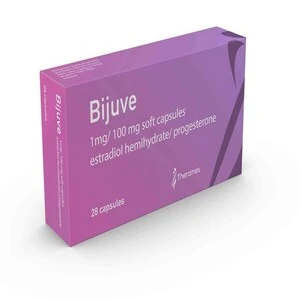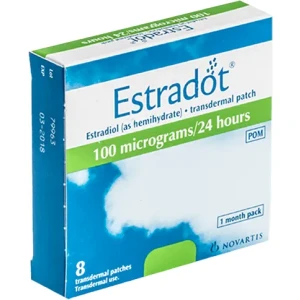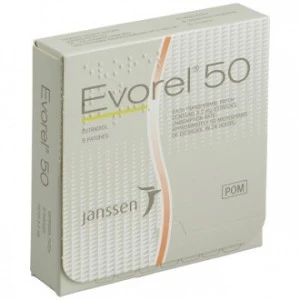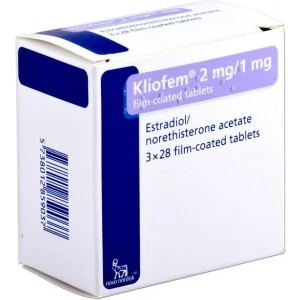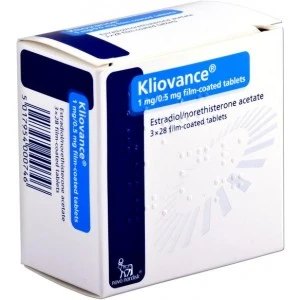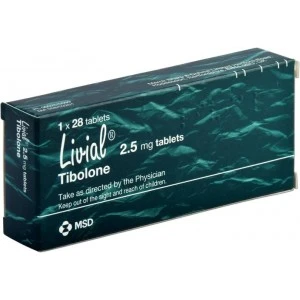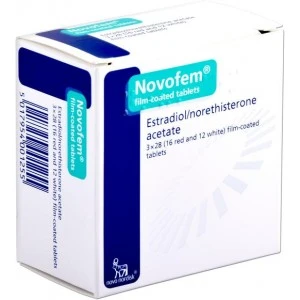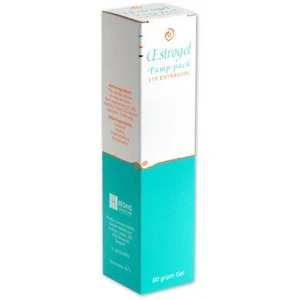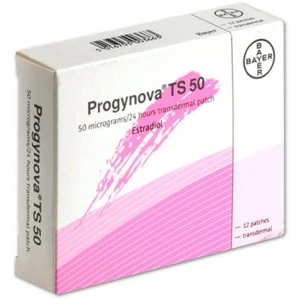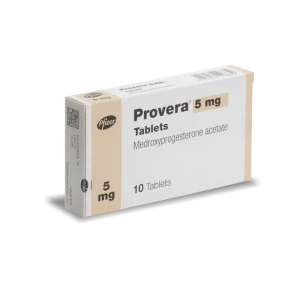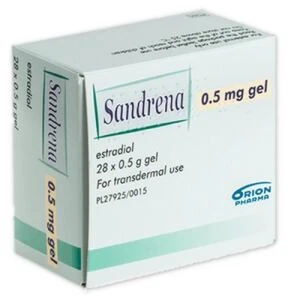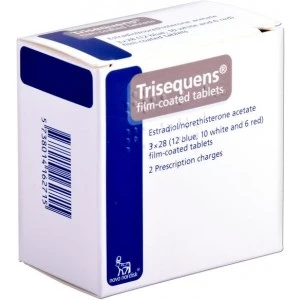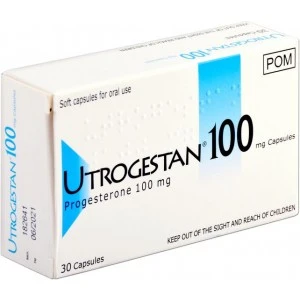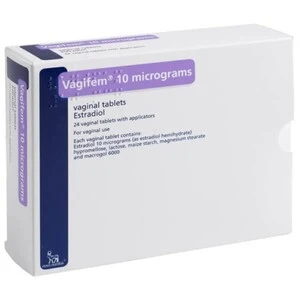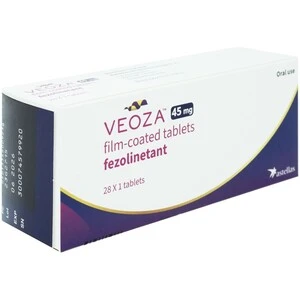Menopause
Menopause is a natural part of ageing and occurs when a woman has not had a period for 12 consecutive months. The average age of menopause in the UK is 51. Although it happens to all women, some women experience more severe symptoms than others.
However, there are treatments available that can help manage menopause symptoms and improve your quality of life as you go through this transitional period in your life.
Bijuve
- Treats symptoms of the menopause
- Available to re-order
- Prescribed by a registered clinician
Estradot
- Relieves hot flushes and night sweats
- Transdermal patch worn twice weekly
- Discreet and easy to use
Evorel
- Easy to apply transdermal patch
- Available to reorder
- Prescribed by a registered doctor
Kliofem
- Relieves symptoms of the menopause
- Available for reorder
- Prescribed by a registered doctor
Kliovance
- Reduces menopause symptoms
- Repeat prescriptions available
- Prescribed by a registered doctor
Livial
- Relieves postmenopausal symptoms
- Available to reorder
- Prescribed by a registered doctor
Novofem
- Treats symptoms of the menopause
- Repeat prescription available
- Prescribed by a registered doctor
Oestrogel Pump
- Easy to use pump
- Prevents osteoporosis
- Dispatched via a next-day delivery
Progynova
- Easy to apply patch
- Reduces menopause symptoms
- Available from a UK-registered pharmacy
Provera For HRT
- prescribed as a hormone replacement therapy
- treat symptoms of the menopause
- available on the NHS for HRT
Sandrena
- Easy to apply gel
- Replaces oestrogen
- Treats menopause symptoms
Trisequens
- Treats symptoms of the menopause
- Available to re-order
- Prescribed by a registered doctor
Utrogestan
- Increases progesterone levels
- Reduces postmenopausal symptoms
- Available from a UK-registered pharmacy
Vagifem
- Treats vaginal dryness
- Releases estrogen directly into the vagina
- Restores the body’s oestrogen levels
Veoza
- Treats symptoms of the menopause
- Available to re-order
- Prescribed by a registered clinician
What is menopause?
Menopause is a natural part of ageing for anyone who gets periods, but it can disrupt your everyday quality of life. In the UK, the average age of menopause is 51, but it typically occurs between the ages of 45 and 55. Menopause is defined by a permanent stop in menstruation (periods) and is usually diagnosed when a woman has not had a period for 12 consecutive months.
Menopause is the permanent end of your periods, but it occurs in three stages:
- Perimenopause
- Menopause
- Postmenopause
What is perimenopause?
Perimenopause is the transition period leading up to menopause, where your ovaries gradually stop producing eggs. During this time, you may experience menopause symptoms, but you will still have periods, even if they are irregular. During postmenopause, individuals are at an increased risk of developing osteoporosis and heart disease, partly due to low hormone levels, along with factors like genetics and lifestyle.
What is postmenopause?
Postmenopause is the time after menopause, and you stay in this stage for the rest of your life. Most menopause symptoms ease during postmenopause, but you can still have mild symptoms for several years, which may even require treatment. During postmenopause, women are at an increased risk of developing osteoporosis and heart disease because of low hormone levels.
At what age does menopause start?
Menopause usually affects women between the ages of 45 and 55, with the average UK age being 51. However, it can occur earlier or later, depending on your:
- Family history
- Medical conditions
- Medical procedures
- Lifestyle factors, e.g. smoking
For example, early menopause occurs when your periods stop before the age of 45.
What causes menopause?
Menopause is caused by a fall in circulating oestrogen levels and a loss of ovarian function.
The ovaries are responsible for producing oestrogen and progesterone, which regulate the normal menstrual cycle. So, when you enter menopause, the ovaries no longer produce as much of these hormones, which can have a wide range of effects on your body.
Environmental factors can also cause menopause. For example, if your ovaries are treated with chemotherapy or radiotherapy or are removed during a hysterectomy, this can result in menopause.
What are the symptoms of menopause?
Most women will experience menopause symptoms. Although some will experience none or very few, others may have severe symptoms that can severely impact their quality of life. Menopause symptoms can affect many different areas of the body and health, and can include:
- Hot flushes
- Night sweats
- Vaginal dryness
- Painful sex
- Sleep issues
- Mood changes
- Memory issues and brain fog
- Dry skin, mouth, or eyes
- Breast tenderness
- Headaches
- Joint and muscle pain
- Recurrent urinary tract infections (UTIs)
- Sensitive teeth and mouth problems
- Heart palpitations
How long do menopause symptoms last?
Menopause symptoms can last for months or years. They can also change over time, so some symptoms may improve, while others may develop. Others may continue long after your periods stop, such as vaginal dryness, and you may require treatment to help manage them.
Menopause treatment: What is HRT?
The main treatment for menopause and perimenopause symptoms is hormone replacement therapy (HRT).
HRT works by replacing the hormones that are low during menopause, helping to restore some balance and manage some of the debilitating symptoms. You’ll use HRT to replace the oestrogen your body is producing less of, and if you still have your womb intact, then you’ll also need to take progesterone to protect your womb lining.
The table below shows the forms of oestrogen and progesterone HRT that are available.
| Oestrogen | Progesterone |
|---|---|
| Skin patches | Patches |
| Skin gel or spray | Intrauterine system (IUS) |
| Implants | Tablets |
| Tablets |
What types of HRT are there?
There are several different types of HRT depending on your symptoms, whether you need oestrogen alone or in combination with progesterone, and which part of your body is affected.
Combined HRT Tablets: These contain oestrogen and progesterone and are known as continuous combined HRT tablets because they are taken daily without interruption to manage menopause symptoms. A clinician can prescribe these tablets to manage symptoms like hot flashes, mood swings, and vaginal dryness. Continuous combined HRT is usually only recommended if you are postmenopausal.
Common combined HRT tablets available from Prescription Doctor include:
Combined Patches: Combined oestrogen and progesterone patches work in a similar way to continuous combined tablets, except they are worn directly on the skin. They are usually applied once or twice a week, below the waist, and continuously release hormones to restore balance. They may be more suitable if you struggle to remember to take daily pills.
At the Prescription Doctor, we can prescribe Evorel combined HRT patches.
Vaginal Oestrogen: Known as local HRT because it is applied directly to the vagina to relieve symptoms like vaginal dryness and urinary symptoms. It won’t treat symptoms like hot flushes. Vaginal oestrogen is available in several forms including creams, pessaries, tablets, and rings.
At Prescription Doctor, our clinicians can prescribe Vagifem.
Other forms of HRT:
- Oestrogen Gel: An increasingly popular type of HRT, oestrogen gel is applied to your skin and can be combined with progesterone HRT if you haven’t had a hysterectomy.
- Steroids: Tibolone, the active ingredient in Livial, is a man-made steroid that is transformed into compounds that mimic oestrogen, progesterone, and testosterone, helping to restore hormonal balance and treat common menopause symptoms.
- Progesterone HRT: If you have not had your womb removed in a procedure called a hysterectomy, then you will need to take progesterone alongside oestrogen to protect your womb from the effects of oestrogen. Progynova, Provera, and Utrogestan are all progesterone HRT treatments available from Prescription Doctor.
Is HRT safe?
Yes, if you have been prescribed HRT by a clinician, it is safe for you to take it. The benefits of HRT usually outweigh the risks, but the risks can put some people off.
Previous research has identified some risks associated with taking HRT; however, more recent evidence suggests that serious side effects are rare. However, if you are under 60 and aren’t at high risk of breast cancer or blood clots, HRT is likely to be beneficial for you.
Authored By

Mohamed Imran Lakhi
MPharm - Lead PharmacistPublished on: 28/02/2019
Reviewed By

Dr Giuseppe Aragona
DoctorReviewed on: 21/01/2025
© 2013 - 2026 Al Muhsineen Limited. All Rights Reserved. Registered Pharmacy: 34 Halliwell Road, Bolton BL1 8RL. Registered Office: 254 First Floor, Shearbrow, Blackburn, England, BB1 8DS

